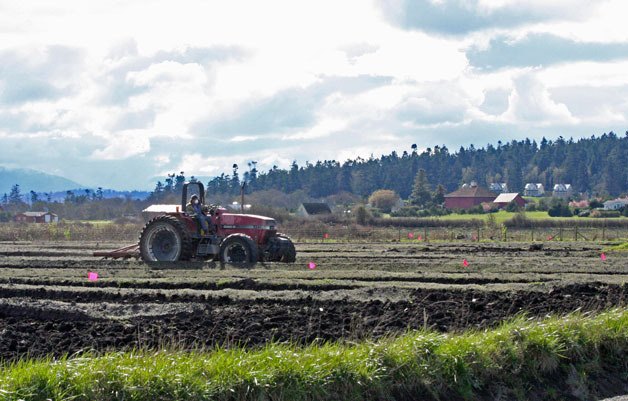Island County Planning Commission members heard the concerns of Ebey’s Landing National Historical Reserve farmers and removed restrictions on recreational marijuana operations in that area this week.
“After we heard the testimony of folks who have lived there for years, we were all pretty well convinced,” said Planning Commissioner Scott Yonkman. “Placing restrictions in the reserve didn’t fit as we first thought it might.”
The restrictions were taken out of the findings and recommendations approved by the planning commission Tuesday. This information will now be used to draft a marijuana ordinance that will go before the county commissioners for approval.
Farmers claimed the restriction on the reserve granted “farmers outside the reserve an unfair competitive advantage and sets a dangerous precedent,” wrote Charles Arndt in a letter to county leadership.
The county is in the process of developing an ordinance in response to the state’s passing of Initiative 502, which legalized recreational marijuana. The county put a six-month moratorium in place while they research and develop regulations. County leadership is hoping to have an ordinance in place before the moratorium expires in May.
Originally, the planning commission recommended that the county restrict marijuana operations to the smallest tier — 2,000 square feet or less — and not allow processing and retail operations.
Dozens of Ebey’s Reserve farmers told planning commissioners by letter and at a public forum in March that they did not want Ebey’s Reserve to be treated any different when it comes to marijuana.
“As farmers farming within the boundaries of Ebey’s Landing National Historical Reserve, this potential precedent-setting infringement on the flexibility, competitiveness and sustainability of the agriculture is of deep concern to us,” stated a letter signed by nine residents.
The Ebey’s Reserve Trust Board agreed with farmers, in a letter released this week, that existing county guidelines on development in the reserve should suffice and no additional marijuana-specific regulation would be necessary.
“Therefore, the Trust Board requests that the language establishing special regulatory conditions for the reserve be removed from the draft regulations,” the letter stated.
Despite the concession to no longer restrict marijuana operations in the reserve, the planning commission still defines the crop as “unlike other plants grown and processed as typical agricultural practices,” a move that many farmers disagree with.
This definition was created because marijuana is subject to tracking, is a controlled substance, may not be traded at farm stands and is expected to be grown primarily indoors, according to the recommendations.
“All products grown in Washington are subject to tracking, accounting, state licensing and security at all levels,” Josh Frank Harvey wrote to the county. “I question the factual basis of your finding … .”
Yonkman said that for him, the decision to define marijuana as not quite agriculture was due to its classification as a controlled substance.
“It’s the primary thing I latched onto and made me feel it was a good decision,” Yonkman said.



